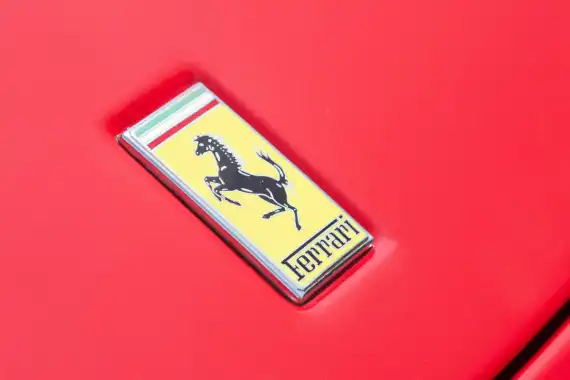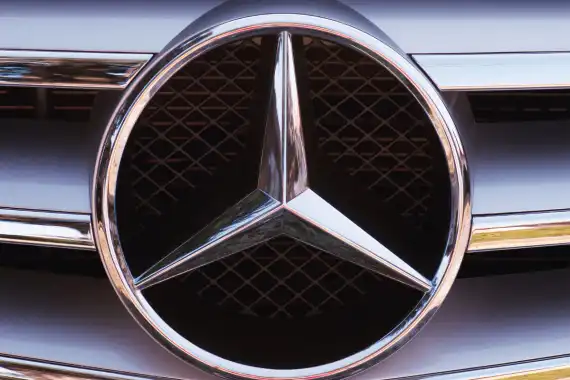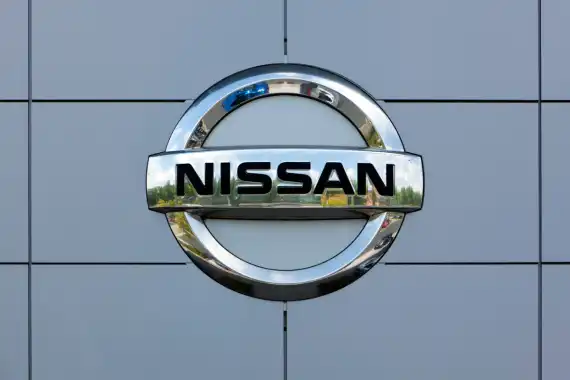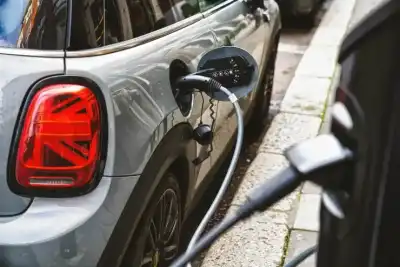
We all know the names of the world's most famous car brands, but have you ever wondered where those names actually come from? From ancient languages to clever acronyms, here’s the fascinating story behind some of your favourite car names.
Aston Martin
Aston Martin’s name is a combination of two inspirations. "Martin" comes from Lionel Martin, one of the company’s founders. "Aston" was taken from the Aston Clinton Hill Climb race in Buckinghamshire, a motorsport event where the brand had early success.
Audi
August Horch, Audi’s founder, couldn't use his surname for his new company because it was already tied to his previous business, A. Horch & Cie. Motorwagen Werke. In German, "Horch" means "listen" — so he translated it into Latin, creating "Audi."
BMW
BMW started in aviation, originally known as Bayerische Flugzeug-Werke (Bavarian Aircraft Works). In 1917, it shifted its focus to motor vehicles and changed its name to Bayerische Motoren Werke — Bavarian Motor Works — eventually shortened to BMW.
Dacia
Founded in Romania, Dacia set out to provide affordable and reliable vehicles to local drivers. The name comes from "Dacia," the ancient Roman name for the region that is now Romania.
Ferrari

Enzo Ferrari founded the iconic brand in 1947. The surname "Ferrari" comes from "ferraro," meaning "blacksmith" in Italian — similar to how "Smith" is a common surname in English-speaking countries.
Fiat
Fiat has a dual meaning. It stands for Fabbrica Italiana Automobili Torino — Italian Automobile Factory of Turin. Interestingly, "fiat" also means "let it be done" in Latin, symbolising creation and ambition.
Hyundai
In Korean, "Hyundai" translates roughly to "modernity." The name was chosen to reflect the company's commitment to innovation and cutting-edge design.
Jaguar
Originally known as the Swallow Sidecar Company and later SS Cars, the brand changed its name to Jaguar in 1945. This was partly to avoid any association with the Nazi SS during and after World War II.
Jeep
The name "Jeep" evolved from the military abbreviation "GP," which stood for "General Purpose" vehicles. Jeep’s rugged, all-purpose reputation started with its military roots and continues today.
Kia
Kia’s name is rooted in ambition. "Ki" means "to rise" and "A" stands for Asia. Put together, Kia’s name symbolises "rising out of Asia" — a perfect description for its global aspirations.
Mercedes-Benz

The name Mercedes-Benz brings together multiple legacies. Karl Benz, the founder of Benz & Cie, partnered indirectly with Daimler-Motoren-Gesellschaft (DMG), where Emil Jellinek, a key figure, named one of the early DMG models after his daughter, Mercedes. In Spanish, "Mercedes" means "mercy."
Mitsubishi
Mitsubishi’s name and logo reflect its heritage. "Mitsu" means "three" and "hishi" (pronounced "bishi" when combined) means "water chestnut" — used in Japan to represent a diamond shape. Together, they perfectly describe the company's three-diamond emblem.
Nissan

In 1934, Jidosha-Seizo Kabushiki-Kaisha — or Automobile Manufacturing Co., Ltd — was renamed Nissan after its major investor Nihon Sangyo. "Nissan" is simply an abbreviation of Nihon Sangyo.
Subaru
Subaru is the Japanese name for the Pleiades star cluster, a group of six stars that appear closely packed together. This constellation is also the inspiration behind Subaru’s six-star logo.
Tesla
Tesla Motors was named in honour of Nikola Tesla, the Serbian-American inventor who pioneered the development of alternating current electricity — technology that underpins modern electric motors.
Toyota
Toyota originally started as Toyoda Automatic Loom Works, a company making textile machinery. When entering the automotive world, the name was tweaked to "Toyota" because it required only eight brush strokes in Japanese — eight being a number symbolising luck and prosperity.
Volkswagen
Founded in 1937 by Germany’s Nazi government, Volkswagen’s name translates to "The People's Car." The brand was originally intended to produce affordable cars for German citizens as part of a nationalist movement.
Volvo
"Volvo" comes from the Latin verb volvere, meaning "to roll." It's an apt name for a company dedicated to vehicles in constant motion.
From ancient Latin to clever marketing decisions, the stories behind these brand names reveal a lot about the history, ambitions, and values of the companies themselves. Next time you see a car badge, you’ll know there's more to it than meets the eye!




